Revise Supreme Court Public Records Laws by Opening Deliberations and Files to the Public
Senate Bill 40 proposes the recording of closed judicial deliberations of the Montana Supreme Court and would mandate the disclosure of those deliberations and case information once a case has been finalized.
SB 40 seeks to make internal court discussions part of the public record, potentially undermining the confidentiality that is crucial for the integrity of judicial decision-making.
Sponsor: Senator Greg Hertz (R- Polson)
This is a Senate Select Committee on Judicial Oversight and Reform requested bill.
Why is it important for judicial deliberations to remain confidential?
Historically, judicial deliberations are confidential to preserve the integrity of the decision-making process and protect the privacy of those involved. Requiring the recording of these deliberations could undermine this confidentiality.
For instance, think of a case involving a large tech company accused of misappropriating trade secrets from a smaller competitor. The case is highly complex, involving detailed intellectual property law and confidential business practices. Both companies are influential players in the market, and the outcome of the case could have far-reaching consequences for the industry. An open deliberation process risks creating an environment where business pressures, public opinion, or media scrutiny influence the judicial process.
What are the concerns with Senate Bill 40?
1. Judicial Independence
Public access to court deliberations could raise concerns about the integrity of the judiciary’s internal decision-making process. While transparency is important, it is also important to ensure that the judiciary is able to operate independently and without undue influence from other branches of government. Maintaining a clear separation between the judicial and legislative branches preserves the integrity of the decision-making process and upholds public confidence in the fairness and impartiality of the courts.
2. Right to Know?
While transparency and openness are central to Montana’s Constitution, there are limits. In its 2025 decision in O’Neill v. Gianforte, the Montana Supreme Court affirmed the Governor’s authority to withhold specific documents from public disclosure, recognizing that the executive branch must be able to receive candid opinions from state agency staff. The Court’s ruling highlights the delicate balance between the public’s right to know and the necessity for the executive branch to maintain confidentiality in certain communications. This decision reinforces the principle that, while transparency is crucial, confidentiality in particular processes is essential to ensure unimpeded deliberation and preserve the integrity of governmental functions, including the judicial branch.
3. Chilling Effect
The bill discourages honest, candid discussion among justices. When deliberations are made public, justices may fear backlash or misinterpretation of their views, leading them to be less open in their reasoning and potentially compromising the quality of their decisions.
4. Public Confidence Diminished
While transparency in government is essential, the right to know should be balanced against preserving the public’s trust in an impartial judiciary.
If judicial deliberations are made public, it could create a chilling effect, where justices begin to tailor their discussions to avoid public backlash or scrutiny. This could erode the confidence that Montanans have in the fairness of their courts, ultimately leading to a situation where the judiciary becomes a political tool rather than an impartial legal body.
5. Potential for Public Misunderstanding
While the right to know should allow access to information, it should not create an environment where the public can misinterpret the legal reasoning or deliberative process behind a court’s decision.
Judicial deliberations often involve complex legal analysis and discussion of fine points of legal reasoning. Opening these deliberations to the public may lead to misunderstanding or distortion of the justices’ thought processes, especially when taken out of context.
6. Potential Harm to Judicial Efficiency
The bill could lead to prolonged litigation and confusion over conflicting legal provisions. SB 40 conflicts with existing statutes related to mandamus, court penalties, and enforcement. These conflicts could create a costly legal battle that diverts resources from more pressing issues and ultimately proves ineffective.
7. Constitutional Safeguards
The Montana Constitution’s guarantees for judicial independence and separation of powers are in direct conflict with SB 40’s approach:
- Separation of Powers: Article Ill, Section 1 of the Montana Constitution
- Judicial Independence: Article VII, Section 1 of the Montana Constitution
By forcing disclosure of deliberations, the bill compromises judicial autonomy and could set a dangerous precedent for future interference in the judicial process.
